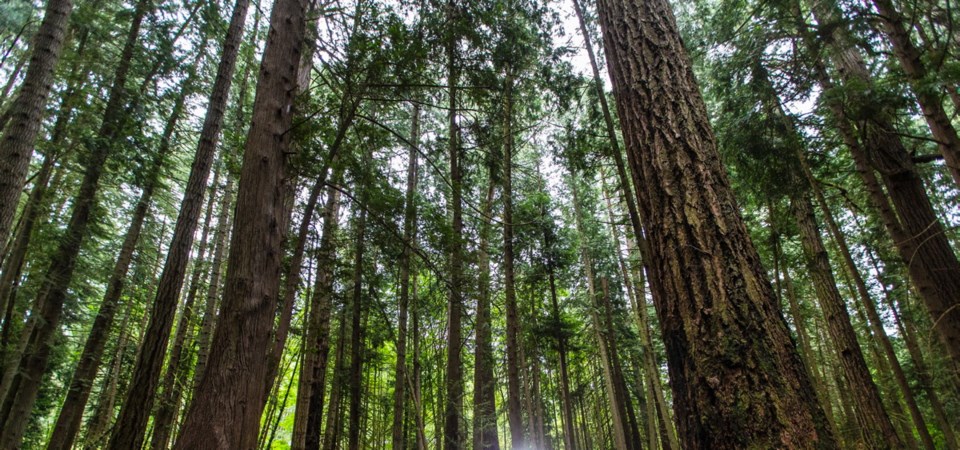One of the core lessons from the coronavirus experience is the need to respect the complexity of organisms and ecological systems that keep this planet healthy and habitable.
Coronavirus is a form of life. Viruses and bacteria are essential for maintaining life on this planet and the human societies it has allowed us to build. But this is not the free ride that we thought it was.
Along with the benefits we have reaped come responsibilities, and those responsibilities have been sadly neglected. Most fundamental of these responsibilities is the need to understand, respect and protect nature.
One of the better things to emerge from our recent experience has been the opportunity to see our politicians rise to the occasion. For example, Premier John Horgan has looked forward, planned strategically, and taken stern measures as the need arose.
And on the 50th anniversary of Earth Day, Prime Minister Justin Trudeau reaffirmed the federal government’s commitment to nature by protecting 25 per cent of Canada’s land and 25 per cent of our oceans by 2025.
As we emerge from the COVID-19 darkness we need to see the light at the end of the tunnel, and that light illuminates the need for nature-based economic solutions. Few places in the world have the opportunity to contribute more thoughtfully to this conversation than British Columbia.
British Columbia’s remaining forests, Interior grasslands and northern wildlands represent some of North America’s most expansive and impressive wilderness areas.
Extensive mountain ranges and wild rivers frame this web-of-life with a richness and diversity that is globally significant.
Our free-roaming populations of caribou, moose, sheep, mountain goats and a full suite of large carnivores, plus hundreds of thousands of migrating songbirds and waterfowl make B.C. their home.
B.C. is one of the few places left on Earth where the large mammal predator-prey systems still function as they have for centuries; as such, B.C. is a gift to the world, and truly one of the world’s best remaining opportunities for conservation on a continental scale.
For 30 years after the first Earth Day in 1970, British Columbia was a world leader in our approach to conserving and respecting the environment.
Governments were engaged and we were all proud of our wildlife, provincial parks, rivers, waters and salmon fisheries. The government conducted research and, as a result, had a relatively good inventory of our natural resource stock of wood, petroleum and minerals and how best to manage them over the long term to support our social, education and health programs.
The government also invested in public education programs so we would be knowledgeable about B.C.’s rich environment and learn about our role in helping to conserve the plants and animals into the future.
Unfortunately, for the past 20 years this situation has no longer been true. Successive governments have been unable to flatten the curve of old-growth logging, declining fisheries, increased numbers of species at risk, killer whale declines and overall environmental degradation.
The “front-line” workers in the environment and other ministries have not been well-supported in carrying out their jobs effectively to enforce standards, to produce sustainable livelihoods and to conserve intact ecosystems for future generations.
During the 1990s the NDP government implemented a sustainability plan that doubled our parks and wilderness areas, promoted energy conservation, improved our environmental monitoring and enforcement, was tough on polluters and restored the working forests.
Once again, it’s time for the provincial government to show leadership and develop a new provincial sustainability vision that protects the environment, ensures healthy communities and secures long-term stable employment while acknowledging our responsibilities to future generations and to the rest of the world.
Studies have shown that the B.C. public supports environmental protection, keeping our community watersheds free from development and conserving habitat for wildlife, birds and plants – while at the same time providing a living so people can stay in their communities where they want to live.
Most British Columbians understand that it is not an either-or, but that keeping the environment healthy will, in itself, contribute significantly to a sustainable economy.
Humans have experienced previous outbreaks, some older like the Spanish Flu and some more recent like SARS, but we did not learn from these experiences. It has been a costly lesson and one that we were fully warned about.
Similarly we have been repeatedly warned of the certainty of environmental collapse followed by societal collapse unless we heed these warnings and take corrective action, now. The coronavirus pandemic is symptomatic of our failure both to heed warnings and protect nature.
For decades, nature has been sending warning signals, each telling us the same thing – the need to respect the environment. Let’s use this experience as a teaching moment, a dress rehearsal, about ourselves and our behaviour.
And let us all urge that the B.C. government move forward from this public health emergency and forge a new vision for the environment and our natural resources that will flatten the environment curve; and ensure that a decade or two from now there will no need to declare another public emergency – this time for the environment.
Bob Peart is a Victoria biologist who has focused on the need to conserve wild spaces and protect wildlife habitat throughout his career. Phil Dearden is a geography professor at the University of Victoria specializing in conservation.



